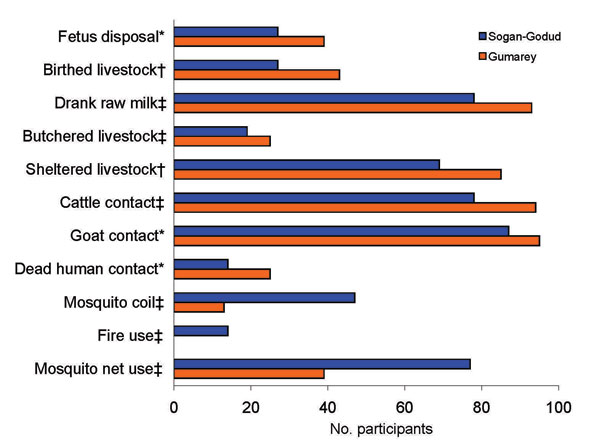Volume 14, Number 8—August 2008
Research
Interepidemic Rift Valley Fever Virus Seropositivity, Northeastern Kenya
Figure 3

Figure 3. Exposures between northeastern Kenyan villages differed; Gumarey had more animal exposure and Sogan-Godud had more mosquito control. *p<0.05; †p<0.01; ‡p<0.001 (by χ2 test).
Page created: July 12, 2010
Page updated: July 12, 2010
Page reviewed: July 12, 2010
The conclusions, findings, and opinions expressed by authors contributing to this journal do not necessarily reflect the official position of the U.S. Department of Health and Human Services, the Public Health Service, the Centers for Disease Control and Prevention, or the authors' affiliated institutions. Use of trade names is for identification only and does not imply endorsement by any of the groups named above.